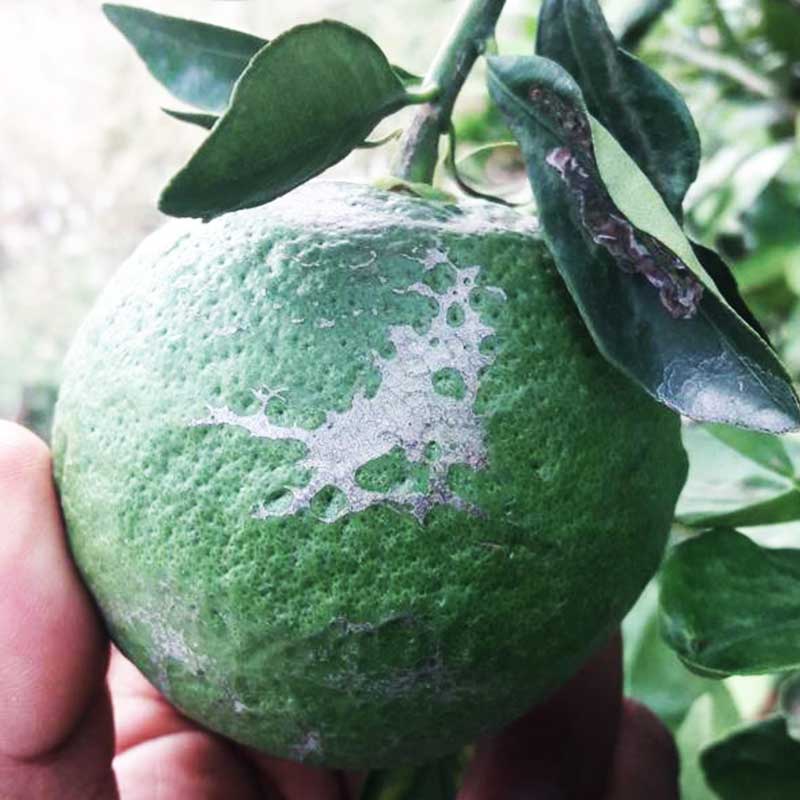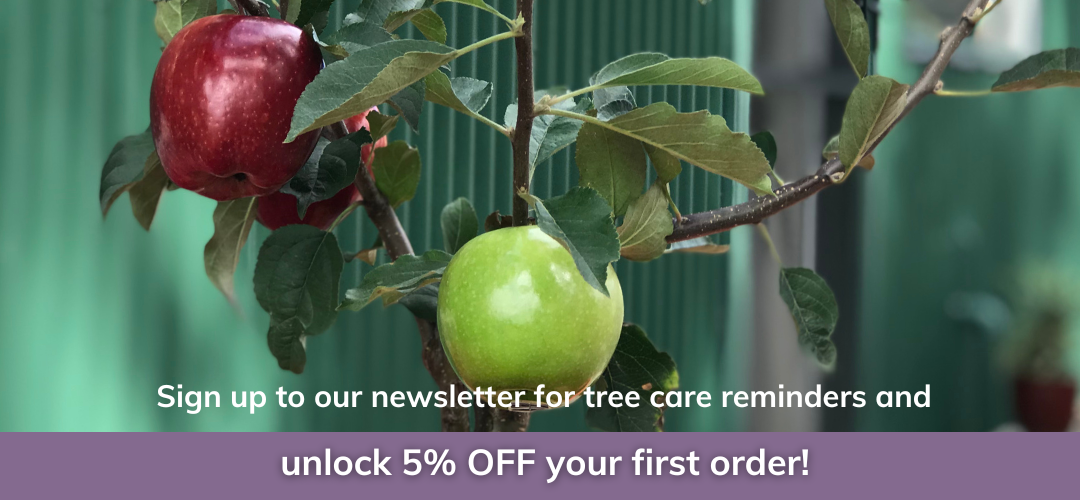




What is causing my citrus leaves to curl and how can I remedy this?
Windburn - Citrus trees exposed to wind will grow slower than those protected from strong wind. Leaves and fruit can be damage when rubbed against thorns, dead twigs and branches due to the wind. Symptoms of wind injury include misshapen and puckered leaves and the fruit will have irregular brown marks on the rind.
Drought stress - Prolonged heat and little to no water is the most common cause of leaves curling. If the leaves are still green, but curling inward, it is a sign of drought stress. If the soil at the base of the tree is dry, then you need to increase watering and add up to 10cm of organic mulch to the base of the tree to keep the moisture in. Don't place the mulch too close to the trunk of the tree.
Try to 'deep water' your tree by leaving the hose on a trickle overnight so that the water can penetrate and nourish the depths of the root system. Read more about watering your Fruit Salad Tree here.
Pests Sap-sucking pests like aphids and mites feed on the juice of the leaves. As their populations grow, they cause deformations including curling, cupping and discolouration. (For more information on these critters check out the aphids and mite sections on the table). Treat aphids and mites with Neem oil in the cooler part of the day. Repeat weekly until the pests disappear from the tree.
Citrus leaf miners leave a trail on the leaves. They don't suck the sap like aphids and mites. Instead, they tunnel through leaf tissues as they grow. It is best to remove the infected leaves and place in the bin to stop the leaf miners moving on to other areas of the garden. You can also spray with Dipel, an organic treatment. Most citrus trees can tolerate leaf miners to an extent, and they are generally tricky to get rid of, so stay patient and keep up the treatments.
Soil - When the leaves are slightly yellow and bent at the tip, it can mean that the tree is not receiving enough potassium. Check your soil pH levels and nutrients before treating. If nutrients are low, check with your local nursery for an appropriate fertiliser.
Fertilise your tree at least twice a year, in late Winter and late Summer. Older manure is better than younger manure. Your compost is also a great fertiliser. You can also try mixing a slow release fertiliser like Osmocote into the soil or Blood and Bone or Dynamic Lifter. But, limit to only one of two of these fertilizers each application.
When using fertilizers, keep them away from the trunk of the tree, and top up the mulch when required.
And that's it! Happy harvesting your beautiful citrus Fruit Salad tree!
References: Plantix, Garden of Eaden, and the FST team.
Subscribe to our Care Reminder Newsletter for growing tips, care advice and current specials!
Welcome to Fruit Salad Trees!

We will send you all the tree care advice you need to grow different fruits on one tree and keep the whole household happy!
